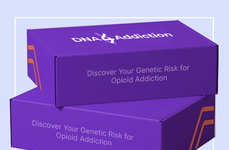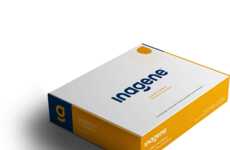
A New 23andMe DNA Test to Assesses the Risk of Breast Cancer
Joey Haar — March 7, 2018 — Social Good
The US Food and Drug Administration has recently approved the direct-to-consumer sale of a new 23andMe DNA test geared toward assessing people's risk of breast cancer, marking the first time that consumers have been able to get such a test without having to consult a physician first.
The test analyzes genes known as BRCA1 and BRCA2, variants of which have been tied to the risk of developing breast cancer. The FDA notes that the 23andMe DNA test only reports on the three variants most common to people of Ashkenazi Jewish descent (i.e. Jews from Eastern Europe), and that there are more than 1,000 known BRCA mutations among the general population. In other words, "a negative result does not rule out the possibility that an individual carries other BRCA mutations that increase cancer risk".
Nonetheless, this direct-to-consumer test can help people in potentially high-risk demographics (like Ashkenazi Jewish women) to screen themselves early.
The test analyzes genes known as BRCA1 and BRCA2, variants of which have been tied to the risk of developing breast cancer. The FDA notes that the 23andMe DNA test only reports on the three variants most common to people of Ashkenazi Jewish descent (i.e. Jews from Eastern Europe), and that there are more than 1,000 known BRCA mutations among the general population. In other words, "a negative result does not rule out the possibility that an individual carries other BRCA mutations that increase cancer risk".
Nonetheless, this direct-to-consumer test can help people in potentially high-risk demographics (like Ashkenazi Jewish women) to screen themselves early.
Trend Themes
1. Direct-to-consumer DNA Testing - There is an opportunity for companies to provide affordable and accessible DNA testing options for consumers, allowing them to take control of their own health.
2. Personalized Cancer Risk Assessment - The ability to assess one's own cancer risk through DNA testing opens up opportunities for personalized prevention and treatment plans.
3. Genetic Counseling Services - As more people receive genetic test results without the guidance of a physician, there is a need for accessible and reliable genetic counseling services.
Industry Implications
1. Healthcare - The healthcare industry can leverage advances in genetic testing technology to provide more personalized prevention and treatment plans for various diseases.
2. Pharmaceuticals - Pharmaceutical companies can use genetic testing results to develop more targeted and effective drugs for cancer treatment.
3. Genetic Testing Services - Companies that offer genetic testing services can pivot towards a consumer-focused model to take advantage of the growing demand for affordable and accessible testing options.
3.5
Score
Popularity
Activity
Freshness























